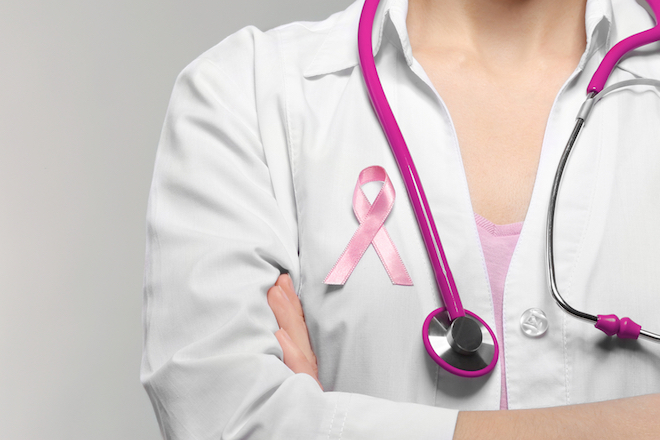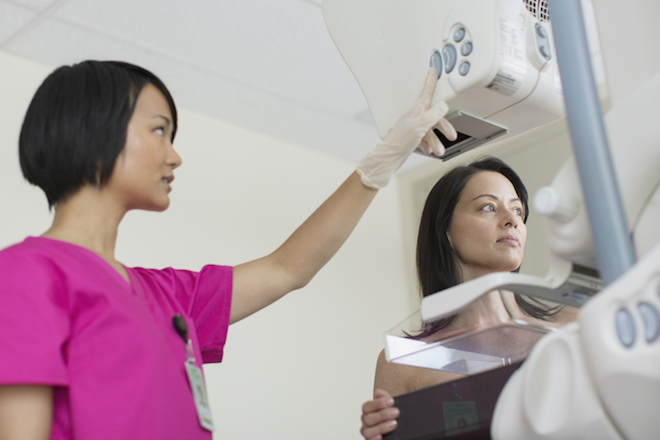By Localiiz
Branded | 17 May 2024
By Localiiz
Branded | 14 May 2024
Copyright © 2025 LOCALIIZ | All rights reserved
Subscribe to our weekly newsletter to get our top stories delivered straight to your inbox.
Ahead of Breast Cancer Awareness Month, Localiiz’s Amanda Sheppard sits down with Dr James Kong at Matilda International Hospital who specialises in breast, head, and neck surgery, to find out more about breast health and what to look out for.

In 2015, the Hong Kong Cancer Registry reported 3,920 new breast cancer cases in women – up from 3,868 in 2014. According to a recently published report by the Hong Kong Breast Cancer Foundation (HKBCF), one in 16 local women will develop breast cancer in their lifetime. While numbers are on the rise, the data shows that the situation at hand in Hong Kong (for ethnically Chinese women) is encouraging. Compared with figures in the United States, United Kingdom, Australia, and Canada, numbers are on the low end of the spectrum.
Dr James Kong, a visiting specialist in Plastic Surgery to the Matilda International Hospital, echoes from his personal experience that the situation is indeed improving. “Some time back, we didn’t think that we could cure breast cancer, but even the most pessimistic accept that the outlook for Stage I and Stage II breast cancer is very good”. “A cure”, he explains, “means a survivor can live to a normal life expectancy”.

Breast screenings are recommended for women, and particularly for ‘at risk’ categories. Dr Kong says that international guidelines recommend all women between the ages of 50 to 70 should have screenings.
Worldwide studies show that regular breast screening can improve the chance of early detection. Screenings can take the form of self-examination, a clinical check-up by a physician, breast ultrasound, or a mammogram. National guidelines for breast imaging, however, vary depending on the availability of resources and the benefits accruable.
Dr Kong talks about the importance of the appropriate screening ‘test’ – and utilising one that can pick up all the right things, without highlighting unnecessary findings. He illustrates this by talking about an afternoon in Central. “If you’re asked to go and find all the policemen in a location with a ‘test’ which determines that all policemen wear blue shirts, you’re going to identify every person in a blue shirt”. But how many people will you have picked up unnecessarily? “All those additional people will be investigated, and that can be relegated to bad luck!”
When considering the screening options available to you, it’s always best to have a close, detailed discussion with your family doctor. They will take into account your age, medical and family history, as well as any other risk factors. Women should begin to familiarise themselves with their breasts from a young age, and consider check-ups and screenings at a later stage.
A recent report by the HKBCF indicated that almost 80 percent of local breast cancer cases were discovered by the patients themselves. Self-examination, while not ‘evidence-based’, is most beneficial when women are aware of their normal breasts. Otherwise, you may simply be looking for something to be wrong. Dr Kong says it is crucial to know what is normal for you. He suggests picking a date after your period, and examining yourself on the same date within your cycle every month, so that you know what it should feel like. This makes it easier to notice a change and to see if something is different, or worrying.
There are three treatment options for breast cancer – surgery, radiation, and drug treatment (which includes hormone therapy, targeted therapy, and chemotherapy). These are implemented depending on their compatibility with the type and extent of the cancer detected. “In the old days”, says Dr Kong, “we tended to treat you when you were already overwhelmed. Now, in the hopes of a better outcome, we’re acting earlier”.

Ultimately, Dr Kong says, “being healthy requires you to be happy”. When asked what the ideal situation for a patient would be, he answers, “well, not getting it is good. But if you do have it, stay positive”. He advocates this holistic approach to healthcare as positive, happy people are known to have higher levels of gamma globulin – a known immunity booster and combatant against disease.
“When they reflect back, many of my patients believe that the weeks, months, or years leading up to their diagnosis were the most stressed in their lives”. While well-meaning family and friends do their best to be supportive, it is important to remember “to emotionally support, not cocoon”.
Dr Kong was the co-founder of The Brightening Association, a cancer support group that began the support of a core group of survivors. They serve as mentors for newly diagnosed women, and today the organisation has a membership of over 1,000. “I want to stress that being happy is very important”, says Dr Kong. “Whether that’s yoga or meditation, or jumping out of a plane with a parachute – whatever you do that makes you happy”.
[button color=“#008BD2” size="medium" link="https://localiiz.us4.list-manage.com/subscribe/post?u=c2964a434922598f5d8ee53ff&id=07d327a2e8" icon="" target="true"]Subscribe to receive our weekly newsletter[/button]
Top